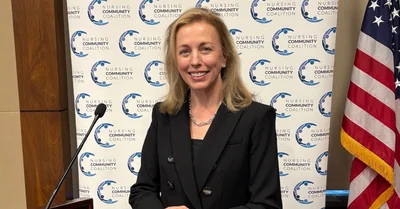A Middle East Fellow at the Wilson Center wrote in a commentary that the United States is losing influence in the Middle East and North Africa (MENA) as China bolsters its relationship with Saudi Arabia.
“U.S. influence in MENA appears to be plummeting while China’s rises,” David Ottaway said in his commentary for the Congress-chartered think tank on Monday, May 1.
Saudi Arabia’s rapprochement with Iran and the efforts of America’s closest Arab allies to reintegrate Syria into the Arab world are evidence of the United States' diminishing influence, his commentary said. Relations between Saudi Crown Prince Mohammed bin Salman (MBS) and President Biden remain strained, while MBS' relationship with Chinese President Xi Jinping is gaining strength.
Ottaway’s commentary said that despite the Biden administration’s concerns about high oil prices, Saudi Arabia has ignored the United States and cut its production by an additional 500,000 barrels per day to raise prices above $80 per barrel. The kingdom has disregarded U.S. warnings about the Chinese company Huawei’s 5G mobile network and has even agreed to host the company.
More evidence of America’s decline is the substantial reduction in its Middle East military presence under the U.S. Central Command (CENTCOM), which encompasses the region from Afghanistan to Israel. Gen. Michael Kurilla, CENTCOM’s commander, told the Senate Armed Services Committee that American “force posture” had decreased by 85% since its peak in 2008, with a 15% reduction last year. The Pentagon is transferring advanced F-15 and F-16 fighter jets out of Asia and replacing them with A-10 attack aircraft, which the U.S. Air Force is retiring due to their slower speed.
“Despite these withdrawal symptoms, the United States is hardly vanishing from the Persian Gulf... The Pentagon is taking the lead in implementation and sidestepping the frosty Biden-MBS relationship,” Ottaway said in his commentary. This plan is “more or less to check China.” National Security Advisor Jake Sullivan was in contact with MBS in April apparently standing in for Biden, the commentary said.
The U.S. has military advantages over China in Saudi Arabia even if China has an economic advantage, Ottaway said, citing the Pentagon's vast military infrastructure in the Gulf, where China has none.
The Pentagon describes its Gulf mission as “security integrator,” Kurilla said in his Senate testimony. Ottaway’s commentary said that entails integrating Gulf Cooperation Council (GCC) forces into U.S.-led regional task forces and conducting military exercises. The Pentagon has carried out B-52 bomber flights from the U.S. and is sending a nuclear-powered submarine loaded with Tomahawk missiles instead of an aircraft carrier.
Kurilla, who has met with local military chiefs and taken several trips to the area, said China is “a growing strategic challenge to U.S. partnerships, access, force presence and security” in the Gulf, according to Ottaway.
Ottaway wrote that China has mediated the restoration of Saudi Iranian diplomatic ties after seven years, which could lead to an end to the eight-year Yemeni civil war and improve U.S.-Saudi relations. Concluding the Yemeni war could result in the resumption of U.S. support for the Saudi invasion and arms sales, and reduce the chances of another war, he said.









